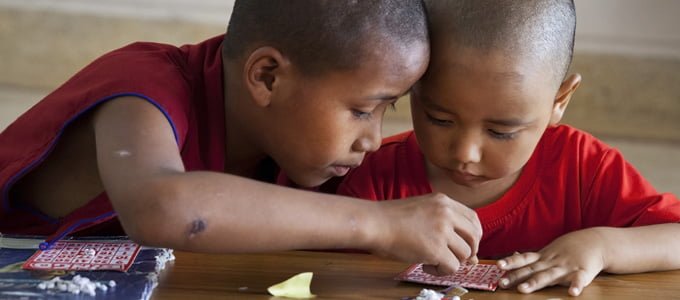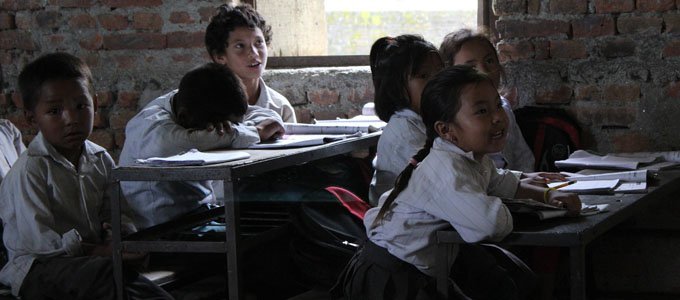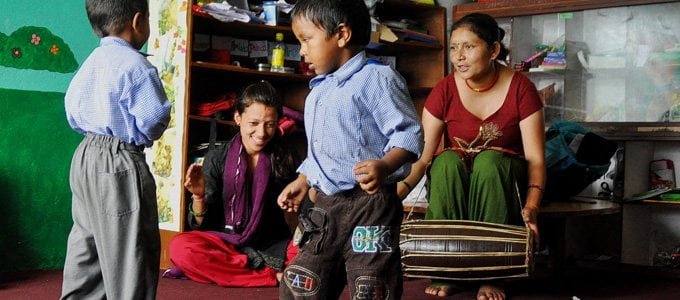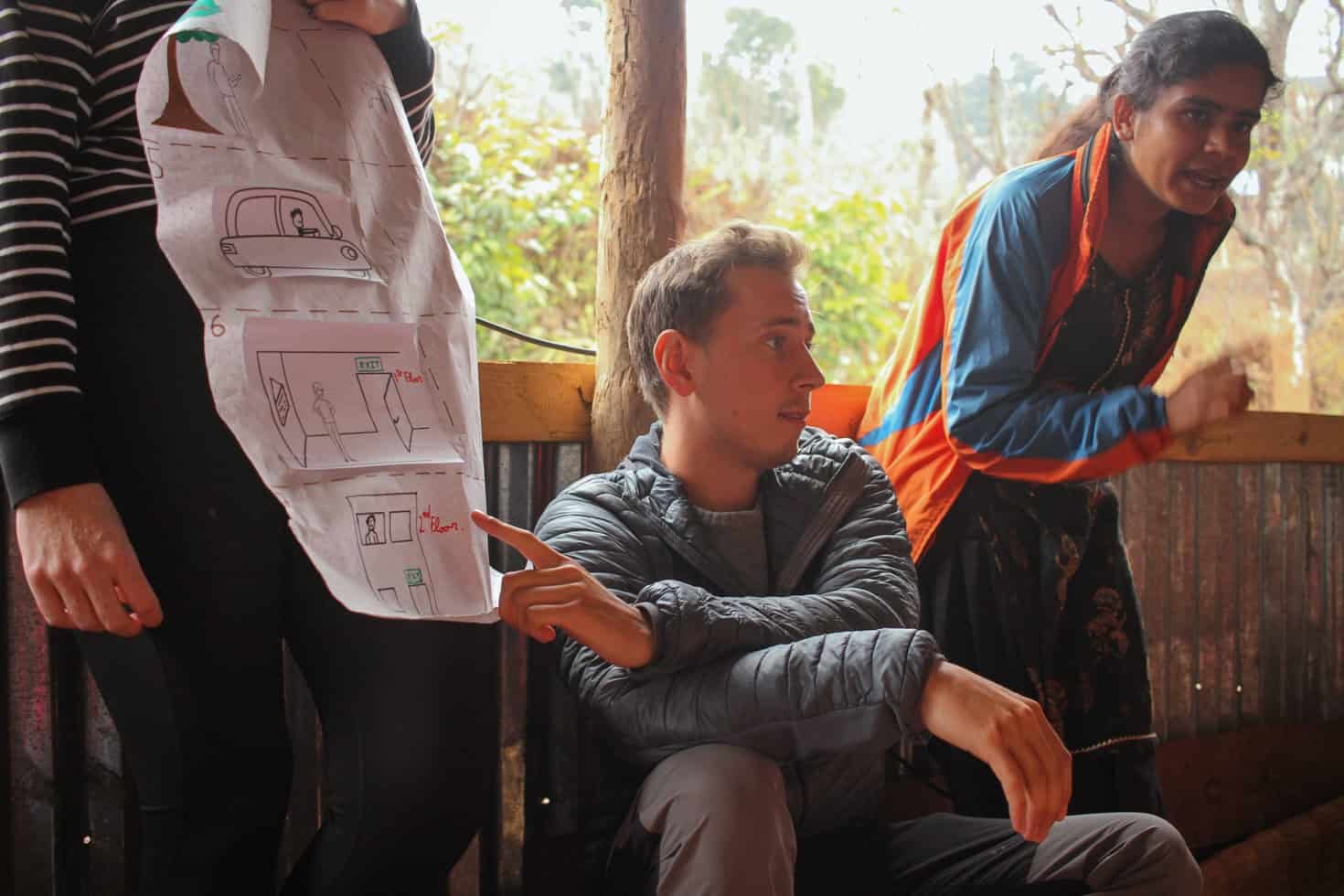Teaching The Deaf Children volunteering project in Nepal

Project at a glance
| Project | Teaching the Deaf Children |
| Start Date | 1st or 15th of each month |
| Activities | Teaching english and multiple skills |
| Working Hours | 6 hours |
| Required Qualification | No any prior experience but individuals with fluent sign-language skills are needed to help tutor deaf teachers. Participants with little to no signing abilities are also needed to help facilitate the program. |
| Benefits | Deaf students get reading and writing skills that helps them to grow on their own |
| Placement locations | Kathmandu, Nuwakot, Okhaldhunga |
| Arrangement of Food/Room | Food and room will be provided to volunteers on the basis of locality they choose |
In partnership with different deaf and blind schools, VIN is seeking experienced deaf educators who are fluent in sign language as well as volunteers without signing abilities. Volunteers will work directly with Deaf schools and programs to improve educational facilities and opportunities for the Deaf community in Nepal. If you have demonstrated experience in this area or have an interest in aiding the deaf community in Kathmandu, Nepal, we welcome your participation.
VIN’s deaf education Program is an intensive literacy program with the goal of teaching English reading and writing skills to deaf children in Nepal. Due to the poor deaf education system in Nepal (most teachers are under-trained in deaf education and sign language or there is no teachers), most deaf students leave school with less than a 5th grade reading level. In order to enter college or attend a teacher training program, deaf students must pass an entrance exam. VIN’s Program aims to help more deaf adults get into college and to put more deaf teachers in deaf schools all over Nepal.
Condition of Deaf children
Most of the disabled individuals in Nepal are ignored, neglected and forced to live in dark rooms, because most of the family members of disabled individuals feel shame at having lost the prestige due to them in the community. As a result, they are dying in the same room or bed where they were born. Some of their families members may also make them beg on the streets. These people have not been able to use their rights. VIN offers interested volunteers from all over the world a chance to provide great support to the disabled children in Nepal. VIN has been closely working with care facilities in and outside Kathmandu Valley who have specialized in caring for these children.
More about disabilities
Volunteering for people with the disabilities, will give you a better feel that you shared part of their difficulties? Volunteer in Nepal for differently able people will help develop a humanity and harmonious society. Working at the Deaf Schools not only allows you to make an important contribution to the education of the students, but also provides opportunities to gain knowledge about the deaf community in Nepal and learn Nepali Sign Language.
Contrary to popular belief Sign Language is not universal. Each country has its own Sign Language. In fact, even within a country signs may differ from region to region, much like an accent or dialect. Currently there are 182 different Sign Languages including dialects and sign systems. Within Nepal, Sign Language is relatively new. Given that a large number of the population in Nepal is deaf, and most live in rural areas without access to education or Sign Language training, it is difficult for deaf students to get a proper education. Even at deaf schools there is no curriculum designed for deaf students.
However, deaf students are eager to learn and warmly welcome a chance to improve their skills, especially in reading and writing in English. When working at the school it is possible to teach many different subjects or skills from English to art to dance. When choosing to work at the deaf school, you must be patient, friendly, willing to learn Nepali Sign Language, and be willing to enter a completely different world of signs and silence. Teaching there can be a challenge due to the languages being used (English, Sign Language, Nepali, and any other language you bring as a volunteer). However, it can be a wonderful opportunity to work closely with the deaf community, help the students improve their skills, and also grow individually as you learn a new way to think is a world without sound.








